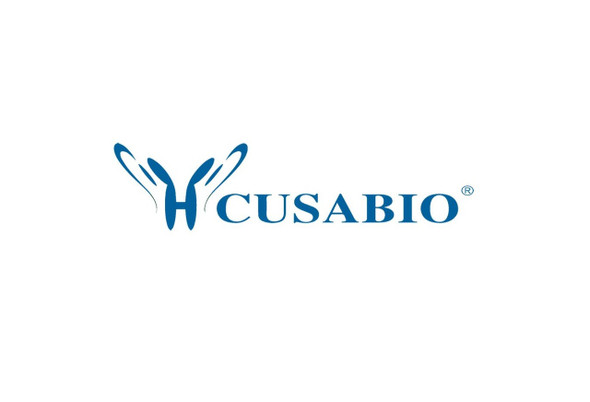Cusabio Human Recombinants
Recombinant Human Heterogeneous nuclear ribonucleoproteins A2/B1 (HNRNPA2B1) | CSB-EP010602HU
- SKU:
- CSB-EP010602HU
- Availability:
- 3 - 7 Working Days
Description
Recombinant Human Heterogeneous nuclear ribonucleoproteins A2/B1 (HNRNPA2B1) | CSB-EP010602HU | Cusabio
Alternative Name(s): Short name: hnRNP A2/B1
Gene Names: HNRNPA2B1
Research Areas: Others
Organism: Homo sapiens (Human)
AA Sequence: MEREKEQFRKLFIGGLSFETTEESLRNYYEQWGKLTDCVVMRDPASKRSRGFGFVTFSSMAEVDAAMAARPHSIDGRVVEPKRAVAREESGKPGAHVTVKKLFVGGIKEDTEEHHLRDYFEEYGKIDTIEIITDRQSGKKRGFGFVTFDDHDPVDKIVLQKYHTINGHNAEVRKALSRQEMQEDLEVAILEVAPVMEEEEEDMVVEDLDMATRVGATEVVMTTMEEEIMEVEITMILEIITSNLLTTVQ
Source: E.coli
Tag Info: N-terminal 6xHis-B2M-tagged
Expression Region: 1-249aa
Sequence Info: Full Length of BC000506
MW: 42.4 kDa
Purity: Greater than 90% as determined by SDS-PAGE.
Relevance: Heterogeneous nuclear ribonucleoprotein (hnRNP) that associates with nascent pre-mRNAs, packaging them into hnRNP particles. The hnRNP particle arrangement on nascent hnRNA is non-random and sequence-dependent and serves to condense and stabilize the transcripts and minimize tangling and knotting. Packaging plays a role in various processes such as transcription, pre-mRNA processing, RNA nuclear export, subcellular location, mRNA translation and stability of mature mRNAs. Forms hnRNP particles with at least 20 other different hnRNP and heterogeneous nuclear RNA in the nucleus. Involved in transport of specific mRNAs to the cytoplasm in oligodendrocytes and neurons: acts by specifically recognizing and binding the A2RE (21 nucleotide hnRNP A2 response element) or the A2RE11 (derivative 11 nucleotide oligonucleotide) sequence motifs present on some mRNAs, and promotes their transport to the cytoplasm. Specifically binds single-stranded telomeric DNA sequences, protecting telomeric DNA repeat against endonuclease digestion. Also binds other RNA molecules, such as primary miRNA (pri-miRNAs): acts as a nuclear 'reader' of the N6-methyladenosine (m6A) mark by specifically recognizing and binding a subset of nuclear m6A-containing pri-miRNAs. Binding to m6A-containing pri-miRNAs promotes pri-miRNA processing by enhancing binding of DGCR8 to pri-miRNA transcripts. Involved in miRNA sorting into exosomes following sumoylation, possibly by binding (m6A)-containing pre-miRNAs. Acts as a regulator of efficiency of mRNA splicing, possibly by binding to m6A-containing pre-mRNAs (Microbial infection) Involved in the transport of HIV-1 genomic RNA out of the nucleus, to the microtubule organizing center (MTOC), and then from the MTOC to the cytoplasm: acts by specifically recognizing and binding the A2RE (21 nucleotide hnRNP A2 response element) sequence motifs present on HIV-1 genomic RNA, and promotes its transport.
Reference: "Primary structures of the heterogeneous nuclear ribonucleoprotein A2, B1, and C2 proteins: a diversity of RNA binding proteins is generated by small peptide inserts." Burd C.G., Swanson M.S., Goerlach M., Dreyfuss G. Proc. Natl. Acad. Sci. U.S.A. 86:9788-9792(1989)
Storage: The shelf life is related to many factors, storage state, buffer ingredients, storage temperature and the stability of the protein itself. Generally, the shelf life of liquid form is 6 months at -20?/-80?. The shelf life of lyophilized form is 12 months at -20?/-80?.
Notes: Repeated freezing and thawing is not recommended. Store working aliquots at 4? for up to one week.
Function:
Involvement in disease:
Subcellular Location:
Protein Families:
Tissue Specificity:
Paythway:
Form: Liquid or Lyophilized powder
Buffer: If the delivery form is liquid, the default storage buffer is Tris/PBS-based buffer, 5%-50% glycerol. If the delivery form is lyophilized powder, the buffer before lyophilization is Tris/PBS-based buffer, 6% Trehalose, pH 8.0.
Reconstitution: We recommend that this vial be briefly centrifuged prior to opening to bring the contents to the bottom. Please reconstitute protein in deionized sterile water to a concentration of 0.1-1.0 mg/mL.We recommend to add 5-50% of glycerol (final concentration) and aliquot for long-term storage at -20?/-80?. Our default final concentration of glycerol is 50%. Customers could use it as reference.
Uniprot ID: I6L957
HGNC Database Link: N/A
UniGene Database Link: N/A
KEGG Database Link: N/A
STRING Database Link: N/A
OMIM Database Link: N/A









